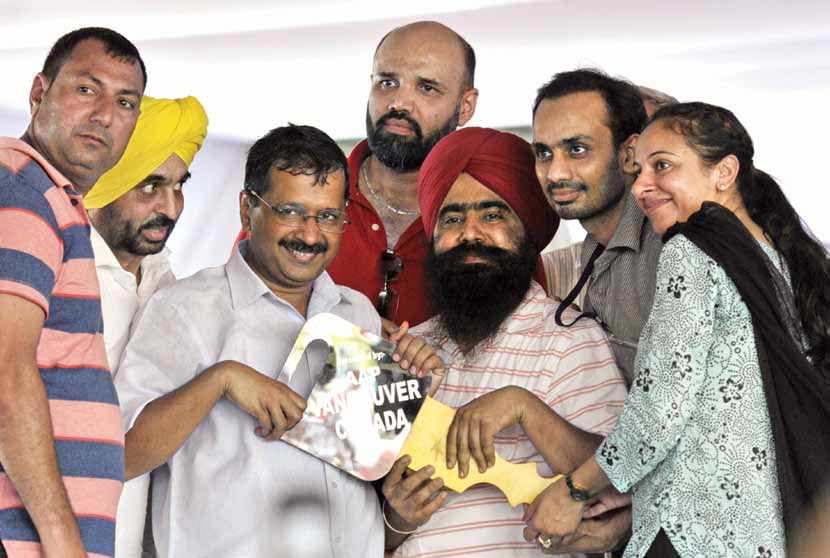Why the personality cult of Arvind Kejriwal is here to stay, and will define the Aam Aadmi Party’s fortunes in Punjab / Politics

It is easy to forget today that the Aam Aadmi Party was not always synonymous with Arvind Kejriwal. There was a time when he was only one of several party leaders, who all spoke their own minds and contributed to the establishment of the party. As the main face of the AAP in Delhi as it campaigned for and won power in the city he may have been the most prominent, but others such as Prashant Bhushan, Yogendra Yadav and Dharamvir Gandhi also counted.
The transformation of the party has been sudden and dramatic. Over the past two years, since the AAP assumed power in Delhi for a second time after a truncated first stint, leaders who have shown any sign of differing with Kejriwal have been purged. This means that the AAP is going into the upcoming polls in Punjab, where it hopes to achieve its first major victory outside the national capital, unable to field a single viable candidate for the chief minister’s post—since Kejriwal, already holding the chief ministership of Delhi, is not an option. A number of possible candidates, none of whom would have been happy to simply echo Kejriwal— such as Manpreet Singh Badal, Navjot Singh Sidhu and Jagmeet Singh Brar— have flirted with the party, only to find that they are not welcome.
This story is from the {{IssueName}} edition of {{MagazineName}}.
Start your 7-day Magzter GOLD free trial to access thousands of curated premium stories, and 9,000+ magazines and newspapers.
Already a subscriber ? Sign In
This story is from the {{IssueName}} edition of {{MagazineName}}.
Start your 7-day Magzter GOLD free trial to access thousands of curated premium stories, and 9,000+ magazines and newspapers.
Already a subscriber? Sign In

Mob Mentality
How the Modi government fuels a dangerous vigilantism

RIP TIDES
Shahidul Alam’s exploration of Bangladeshi photography and activism

Trickle-down Effect
Nepal–India tensions have advanced from the diplomatic level to the public sphere

Editor's Pick
ON 23 SEPTEMBER 1950, the diplomat Ralph Bunche, seen here addressing the 1965 Selma to Montgomery March, was awarded the Nobel Peace Prize. The first black Nobel laureate, Bunche was awarded the prize for his efforts in ending the 1948 Arab–Israeli War.

Shades of The Grey
A Pune bakery rejects the rigid binaries of everyday life / Gender

Scorched Hearths
A photographer-nurse recalls the Delhi violence

Licence to Kill
A photojournalist’s account of documenting the Delhi violence

CRIME AND PREJUDICE
The BJP and Delhi Police’s hand in the Delhi violence

Bled Dry
How India exploits health workers

The Bookshelf: The Man Who Learnt To Fly But Could Not Land
This 2013 novel, newly translated, follows the trajectory of its protagonist, KTN Kottoor.